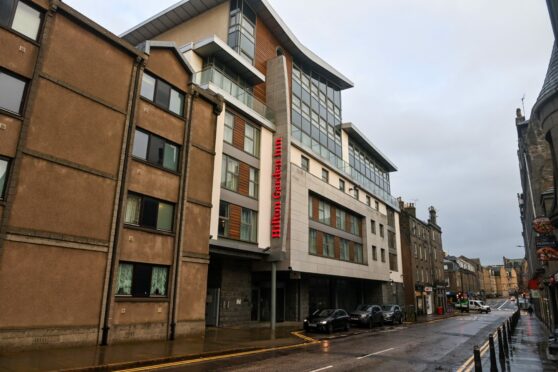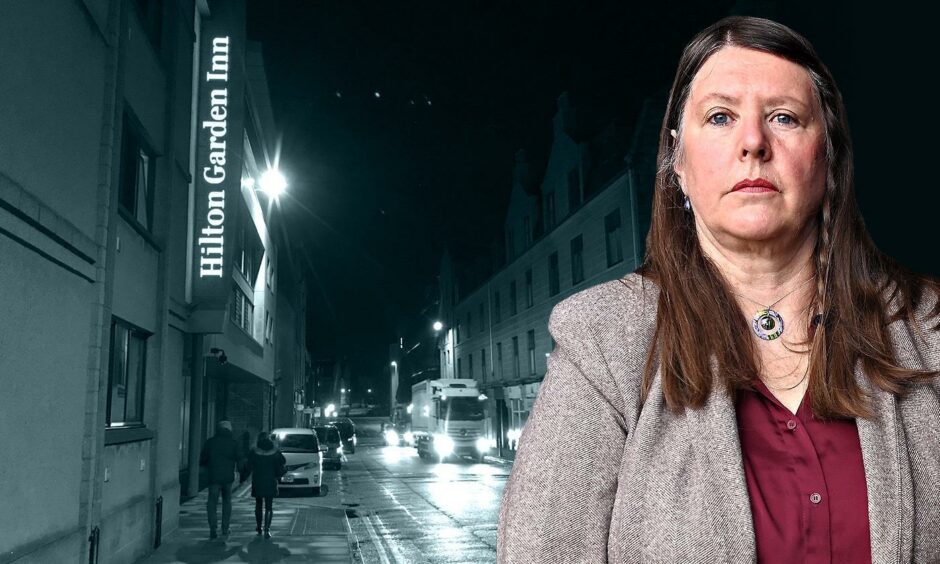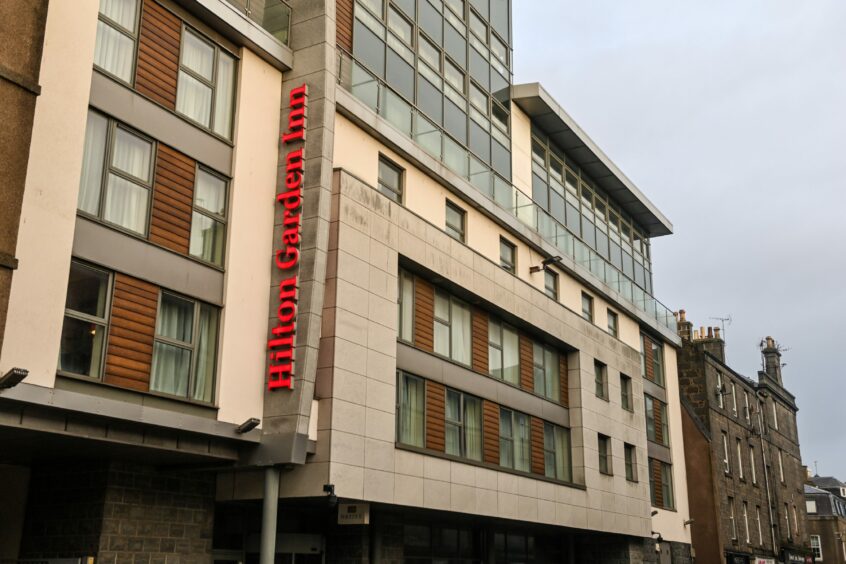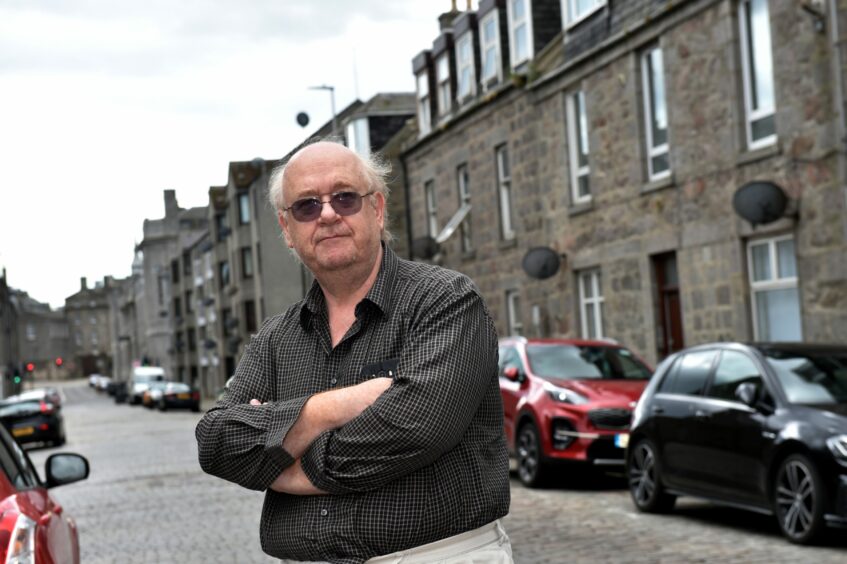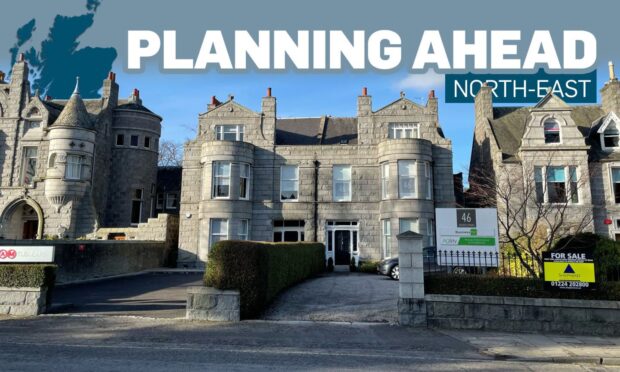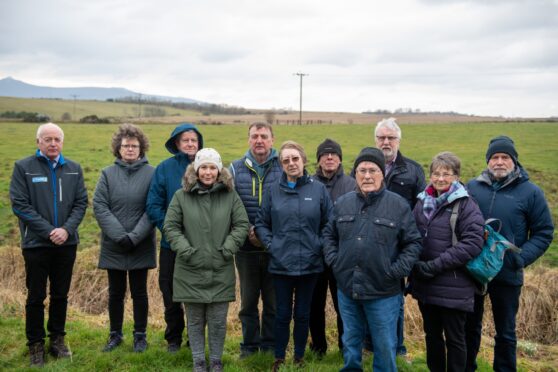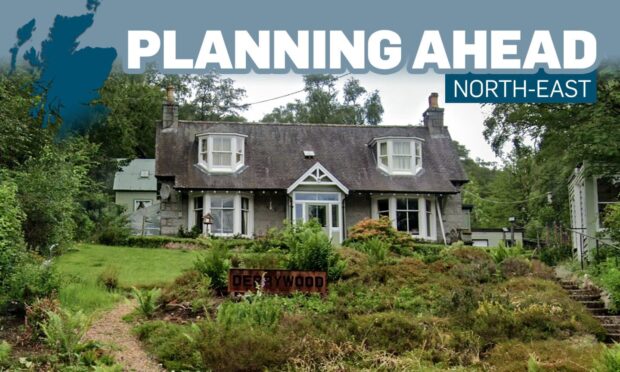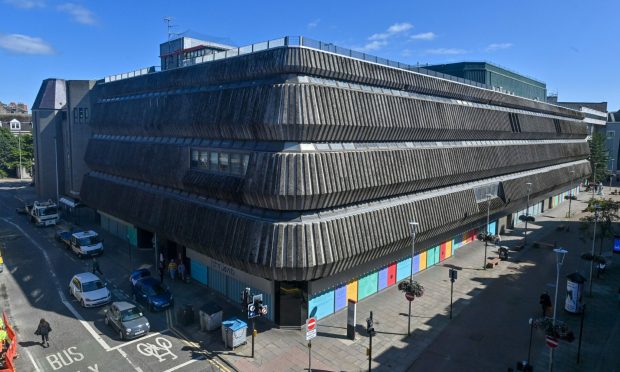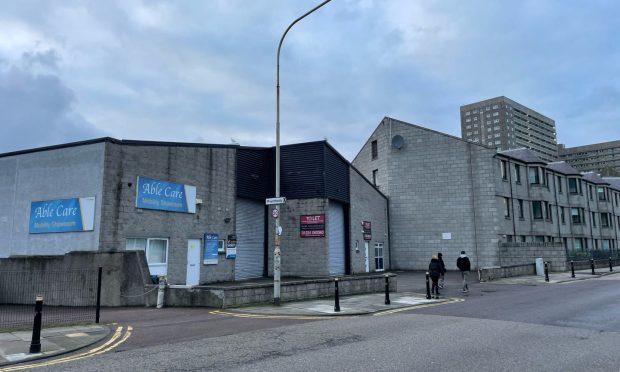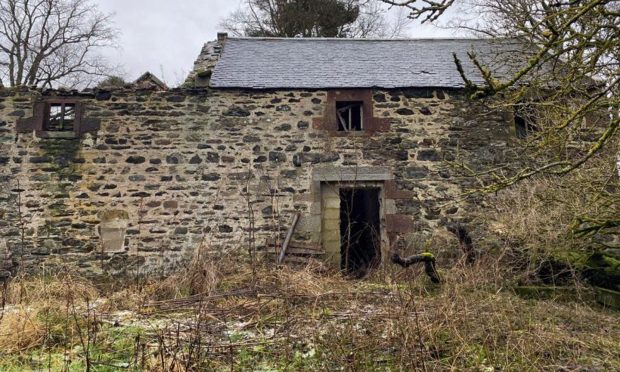Unpopular student flat plans unanimously binned by Aberdeen City Council have been approved by the Scottish Government on appeal.
In December, councillors roundly rejected an application to transform the seven-storey Hilton Garden Inn on St Andrew Street into accommodation for more than 100 students.
But in January, developers Optimal Student appealed for the government to overrule local decision-makers.
And now, Holyrood officials have plucked the scheme from the scrapheap and given it their blessing.
Why didn’t the council approve Hilton Garden Inn plans?
In the months after the plans were revealed, there was growing concern from neighbours who would have to share a communal courtyard with the students.
George Street Community Council said the “loss of amenity” for existing residents would be “devastating”.
And some raised fears the spot could become blighted by people drinking and taking drugs.
All nine members eventually voted to throw out the proposal.
It was a decision George Street councillor Sandra Macdonald insisted was “robust” when the developers mounted their challenge.
What were the grounds for appeal?
Prior to the meeting in December, the council’s own planning department said the plans should be approved.
Edinburgh-based Optimal Student said councillors knocked it back for “immaterial” reasons that “could not be justified”.
They argued that the size of the rooms was not a good enough reason for rejection.
And their letter to the government argued that the rooms would be bigger than in “comparable student accommodation elsewhere in Aberdeen”.
Why did the government approve the Hilton Garden Inn plans?
A Scottish Government reporter toured the vacant hotel on February 17 to help make a verdict.
Trevor Croft said: “The bedrooms appear as though occupiers have only just moved out, with beds stripped but duvets still in place and tea/coffee facilities unused.
“As part of the inspection, we accessed each floor and inspected a cross section of bedrooms.
“The whole property appeared in excellent condition, as might expected in such a modern building.”
Mr Croft also identified a “need” for extra student accommodation in Aberdeen and dismissed concerns about the anti-social use of the courtyard as “not a planning matter”.
He added: “Whilst I accept the concerns of neighbouring occupiers, I am satisfied that sufficient safeguards are in place to ensure the residential amenity of the area would be safeguarded.”
And scotching the councillors’ qualms, they state: “It would be self-defeating to provide a product unattractive to potential occupants.
“From my site inspection I found ample space within the rooms and do not accept the council’s view that they would be too small.”
What is the community’s response?
Chairman of George Street Community Council, Andy Macleod, bemoaned a “poor show” from the government.
Despite Optimal and the reporter claiming otherwise, he maintains the old hotel will not make for adequate student flats.
He said: “We still believe this application is very poor, and liable to be a modern day slum.
“Students can be a vulnerable community, they are inexperienced and don’t have much money, and this won’t be worthy for them.
“We want everyone living in this area to have a good experience.”
What happens now Hilton Garden Inn plans have been approved?
The government decision is dependent on a deal on developer obligations being struck with the council.
This is an agreed level of funding to help pay for the local amenities used by the students.
There will be space for 105 students, each with their own “kitchenette” in bedsit-style rooms.
A reception will operate on the ground floor, next to a “games/chill out area” and there will be a gym, cinema room, cycle stores and 17 parking spaces in the basement.
Does this happen often?
Holyrood has trampled over 380 planning decision appeals in the past five years.
Among them were 42 applications refused by Aberdeenshire Council – the second highest figure in the country, after only Edinburgh City Council.
In Aberdeen, the figure was 14.
A “hugely disappointed” Mrs Macdonald suggested this latest example shows a “concerning” discord between the planning standards applied by the council and government.
